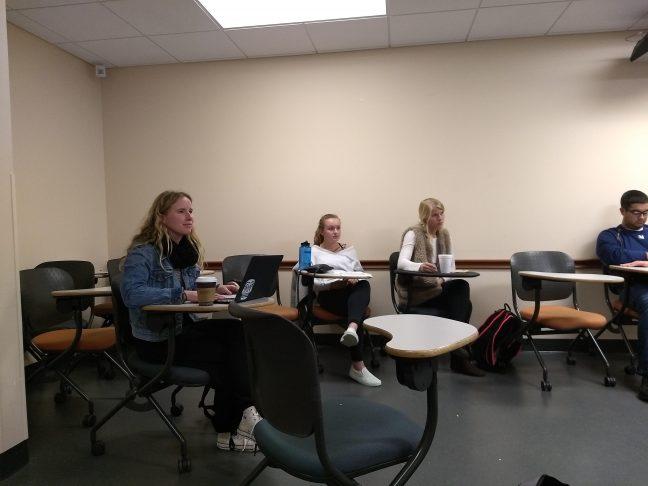In honor of Domestic Violence Awareness Month, Global Health and Promoting Awareness, Victim Empowerment united to facilitate a conversation around domestic violence as a global health issue and the effects of domestic violence on the campus and greater community.
According to Quinn Krantz, a peer education director for PAVE, the two organizations decided to hold the conversation to promote social change and to encourage the engagement of people in the issue of domestic violence.
Krantz and Ciara Michael, peer education director for PAVE and co-president for Globe Health, began the meeting with a short presentation on the prominence of domestic violence in the U.S.
The conversation was opened up to attendees for discussion on various topics facilitated by both Krantz and Michael.
“At PAVE we believe that community dialogue and [people] being able to share their thoughts and ideas really helps us learn and grow together,” Krantz said. “We thought this would be more impactful than just having someone talk at people.”
Many attendees raised concerns about the low rate of consequence for those accused of sexual assault. According to Michael, in response to the dozens of reported assaults on campus, there was only one expulsion and four suspensions.
The 2018 UW Annual Security Report and Annual Fire Safety Report states 15 domestic violence, three dating violence and 22 stalking incidents were reported in 2017.
UW student Rita Simpson said she attended to learn more about sexual violence and learn how to make campus a safer place.
The panel discussed how domestic violence can lead to victim isolation, poor academic performance and social issues.
The conversation shifted to the lack of intersectionality around these conversations and how the #MeToo movement has been catered towards cisgender people.
“There’s not even a lot of statistics for the rates of violence a lot of trans and non-binary folks experience … simply because people aren’t really researching it. Preliminary data shows that it’s even higher for that demographic,” Krantz said.
Attendees also discussed how to best be an ally to those experiencing domestic violence and resources on campus that offer professional help.


